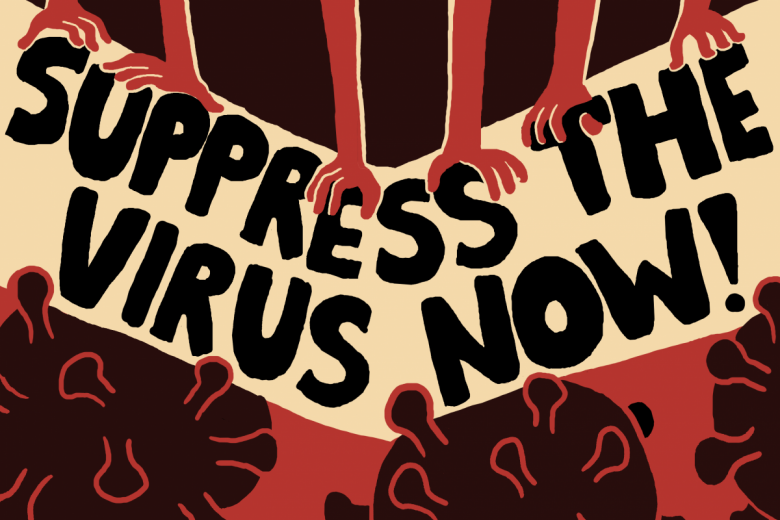1_644_446_90.jpg)
July 1, 2012, will mark the 50th anniversary of the birth of medicare in Saskatchewan, the forerunner of Canada’s national medicare system. It was not an easy delivery. In the summer of 1962, Saskatchewan was beset by a doctors’ strike intent on preserving physician privileges and opposing public health care.
Fifty years later, Canada’s medicare system is again under threat. Harper’s Conservatives have unveiled a plan to scale back health-care funding, destroying medicare as we know it. The ideology of neoliberalism has taken root over the past two decades, and austerity and privatization remain capital’s preferred strategy. But there was a different alignment of political players and social movements 50 years ago when medicare was first fought for.
Saskatchewan might seem like an unlikely place to have established North America’s first comprehensive, government-run, single-payer health-care program. But it is precisely this hinterland province’s experience with hardship and struggle that set the stage for progressive economic and social reforms.
By the 1920s, Prairie farmers had developed strategies for challenging the control of large monopolies by forming co-operatives, in particular the Saskatchewan Wheat Pool. The economic crisis of the 1930s hit Saskatchewan harder than most provinces, and the farmer and labour movements were hard put upon. In 1932 they formed the Co-operative Commonwealth Federation (CCF), and in 1933 declared their Humanity First principle with the Regina Manifesto. The manifesto called for the dismantling of the capitalist system in favour of “an economy in which our natural resources and principal means of production and distribution are owned, controlled and operated by the people,” and further proposed a publicly funded health-care system.
When Saskatchewan elected the first, and only, CCF government in 1944 under the leadership of Tommy Douglas, farmers and workers who were struggling to pay hospital and doctor’s bills expected action. From the outset, the CCF initiated important health-care reforms, including North America’s first comprehensive hospital insurance plan. When the federal government followed suit by providing funding for similar provincial hospitalization plans, Tommy Douglas announced in 1959 that a CCF government would enact a comprehensive health care plan if re-elected in the 1960 provincial election.
This was the beginning of what would become a bitter battle between the CCF-NDP governments of Tommy Douglas and Woodrow Lloyd and the North American medical establishment. From the provincial election campaign of 1960 until the end of the Saskatchewan doctors’ strike in July 1962, the issue of public medical insurance polarized provincial politics to a greater extent than at any time in the 20th century.
When the Saskatchewan Medical Care Insurance Act was implemented on July 1, 1962, doctors responded by launching a province-wide strike. Other opponents of medicare included almost the entire economic elite in the province, a reactionary local media, and a vast array of right-wing politicians who mobilized for the occasion. Together they mounted a campaign to stop “socialized medicine” from establishing a foothold in North America. Their campaign drew upon racial slurs directed at doctors recruited from abroad, red-baiting, and threats of violence. The interests behind the campaign were bent not only on stopping government-administered medicare, but rallying people to rid the province of socialism.
This battle proved to be a watershed in the development of the Canadian welfare state. The CCF government and their labour and agrarian allies, buttressed by socialist activists and a small but courageous minority of doctors, battled the opposing forces to a draw after a 23-day walkout, bringing medicare to Saskatchewan.
The federal political forces in Canada at the time were uniquely aligned to follow Saskatchewan’s lead, and under pressure from many sources, Prime Minister John Diefenbaker appointed Chief Justice Emmett Hall to lead a royal commission on health care in Canada. The report of the Hall commission was made amid much controversy in 1964, but within a few years, a national medicare system was introduced under a minority Liberal government with the support of all parties in the House of Commons.
The advances of the 1960s and ’70s were soon eclipsed by the neoliberal project of the Reagan-Thatcher-Mulroney era. Cuts to health care, education, and other services continued under the Liberals, and are now being pushed by Harper’s neo-cons in ways that fundamentally undermine the universal and public character of our health-care system.
As we celebrate medicare’s 50th anniversary here in Saskatchewan, we must roll up our sleeves and prepare to again engage the forces that oppose public health care. We must once more organize not only to defend and improve medicare but also to propose a bold alternative to the current economic system, an alternative that puts people before profits, and humanity first.



_780_520_90_s_c1.jpg)

